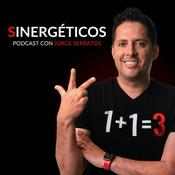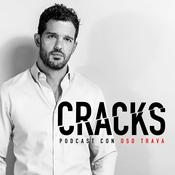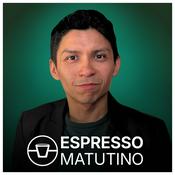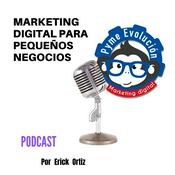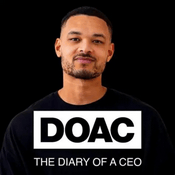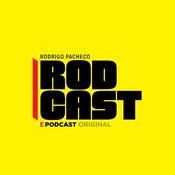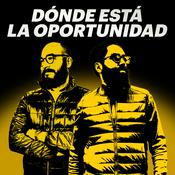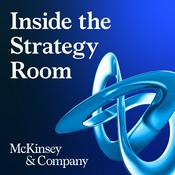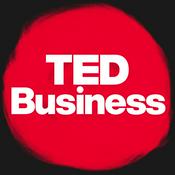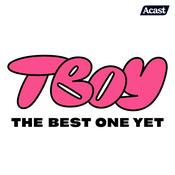134 episodios
- Formal verification already consumes years of human effort.
In this episode, Lukas Biewald talks with Carina Hong, Founder & CEO of Axiom, about why verification is becoming the real bottleneck in high stakes AI systems.
They discuss how Axiom uses AI to take on the tedious checking that stretches verification cycles across years, starting with formal mathematics and extending to hardware and software.
Carina also explains why Axiom’s approach to auto-formalization mirrors spec driven models like Kiro from AWS.
Connect with us here:
Carina Hong: https://www.linkedin.com/in/carina-hong/
Axiom: https://www.linkedin.com/company/axiommath/
Lukas Biewald: https://www.linkedin.com/in/lbiewald/
Weights & Biases: https://www.linkedin.com/company/wandb/ - “I don't worry about being replaced by AI. I worry about being replaced by someone who's really good at using AI.”
Atlassian has 10,000+ engineers currently split-testing the world’s top AI coding tools, from GitHub Copilot and Cursor to Claude Code.
In this episode, Co-Founder & CEO Mike Cannon-Brookes joins Lukas Biewald to share what their data reveals about the world's best AI tools today.
Hear how 24 years of building a tech giant and a massive internal study on AI productivity have shaped Mike's vision for the future of dev jobs.
Connect with us here:
Mike Cannon-Brookes: https://www.linkedin.com/in/mcannonbrookes/?originalSubdomain=au
Atlassian: https://www.linkedin.com/company/atlassian/?viewAsMember=true
Lukas Biewald: https://www.linkedin.com/in/lbiewald/
Weights & Biases: https://www.linkedin.com/company/wandb/
00:00 Trailer
01:08 Introduction
03:11 Connecting Technology and Business Teams
07:22 The Impact of AI on Business Workflows
13:26 Developer Productivity and AI
21:03 Measuring Developer Efficiency
25:41 Future of AI in Development
34:59 Legacy Technology and Code Changes
39:29 AI's Role in Developer Productivity
47:40 AI and Junior Developers
52:30 Product-Led Growth and Business Strategy
01:00:29 Core Metrics for Sustainable Growth
01:06:56 Staying Creative in the Tech Industry - The future of AI training is shaped by one constraint: keeping GPUs fed.
In this episode, Lukas Biewald talks with CoreWeave SVP Corey Sanders about why general-purpose clouds start to break down under large-scale AI workloads.
According to Corey, the industry is shifting toward a "Neo Cloud" model to handle the unique demands of modern models.
They dive into the hardware and software stack required to maximize GPU utilization and achieve high goodput.
Corey’s conclusion is clear: AI demands specialization.
Connect with us here:
Corey Sanders: https://www.linkedin.com/in/corey-sanders-842b72/
CoreWeave: https://www.linkedin.com/company/coreweave/
Lukas Biewald: https://www.linkedin.com/in/lbiewald/
Weights & Biases: https://www.linkedin.com/company/wandb/
(00:00) Trailer
(00:57) Introduction
(02:51) The Evolution of AI Workloads
(06:22) Core Weave's Technological Innovations
(13:58) Customer Engagement and Future Prospects
(28:49) Comparing Cloud Approaches
(33:50) Balancing Executive Roles and Hands-On Projects
(46:44) Product Development and Customer Feedback - The future of AI is physical.
In this episode, Lukas Biewald talks to Nikolaus West, CEO of Rerun, about why the breakthrough required to get AI out of the lab and into the messy real world is blocked by poor data tooling.
Nikolaus explains how Rerun solved this by adopting an Entity Component System (ECS), a data model built for games, to handle complex, multimodal, time-aware sensor data. This is the technology that makes solving previously impossible tasks, like flexible manipulation, suddenly feel "boring."
Connect with us here:
Nikolaus West: https://www.linkedin.com/in/nikolauswest/
Rerun: https://www.linkedin.com/company/rerun-io/
Lukas Biewald: https://www.linkedin.com/in/lbiewald/
Weights & Biases: https://www.linkedin.com/company/wandb/ - Is video AI a viable path toward AGI?
Runway ML founder Cristóbal Valenzuela joins Lukas Biewald just after Gen 4.5 reached the #1 position on the Video Arena Leaderboard, according to community voting on Artificial Analysis.
Lukas examines how a focused research team at Runway outpaced much larger organizations like Google and Meta in one of the most compute-intensive areas of machine learning.
Cristóbal breaks down the architecture behind Gen 4.5 and explains the role of “taste” in model development. He details the engineering improvements in motion and camera control that solve long-standing issues like the restrictive “tripod look,” and shares why video models are starting to function as simulation engines with applications beyond media generation.
Connect with us here:
Cristóbal Valenzuela: https://www.linkedin.com/in/cvalenzuelab
Runway: https://www.linkedin.com/company/runwayml/
Lukas Biewald: https://www.linkedin.com/in/lbiewald/
Weights & Biases: https://www.linkedin.com/company/wandb/
Más podcasts de Economía y empresa
Podcasts a la moda de Economía y empresa
Acerca de Gradient Dissent: Conversations on AI
Join Lukas Biewald on Gradient Dissent, an AI-focused podcast brought to you by Weights & Biases. Dive into fascinating conversations with industry giants from NVIDIA, Meta, Google, Lyft, OpenAI, and more. Explore the cutting-edge of AI and learn the intricacies of bringing models into production.
Sitio web del podcastEscucha Gradient Dissent: Conversations on AI, SINERGÉTICOS y muchos más podcasts de todo el mundo con la aplicación de radio.net

Descarga la app gratuita: radio.net
- Añadir radios y podcasts a favoritos
- Transmisión por Wi-Fi y Bluetooth
- Carplay & Android Auto compatible
- Muchas otras funciones de la app
Descarga la app gratuita: radio.net
- Añadir radios y podcasts a favoritos
- Transmisión por Wi-Fi y Bluetooth
- Carplay & Android Auto compatible
- Muchas otras funciones de la app


Gradient Dissent: Conversations on AI
Escanea el código,
Descarga la app,
Escucha.
Descarga la app,
Escucha.

